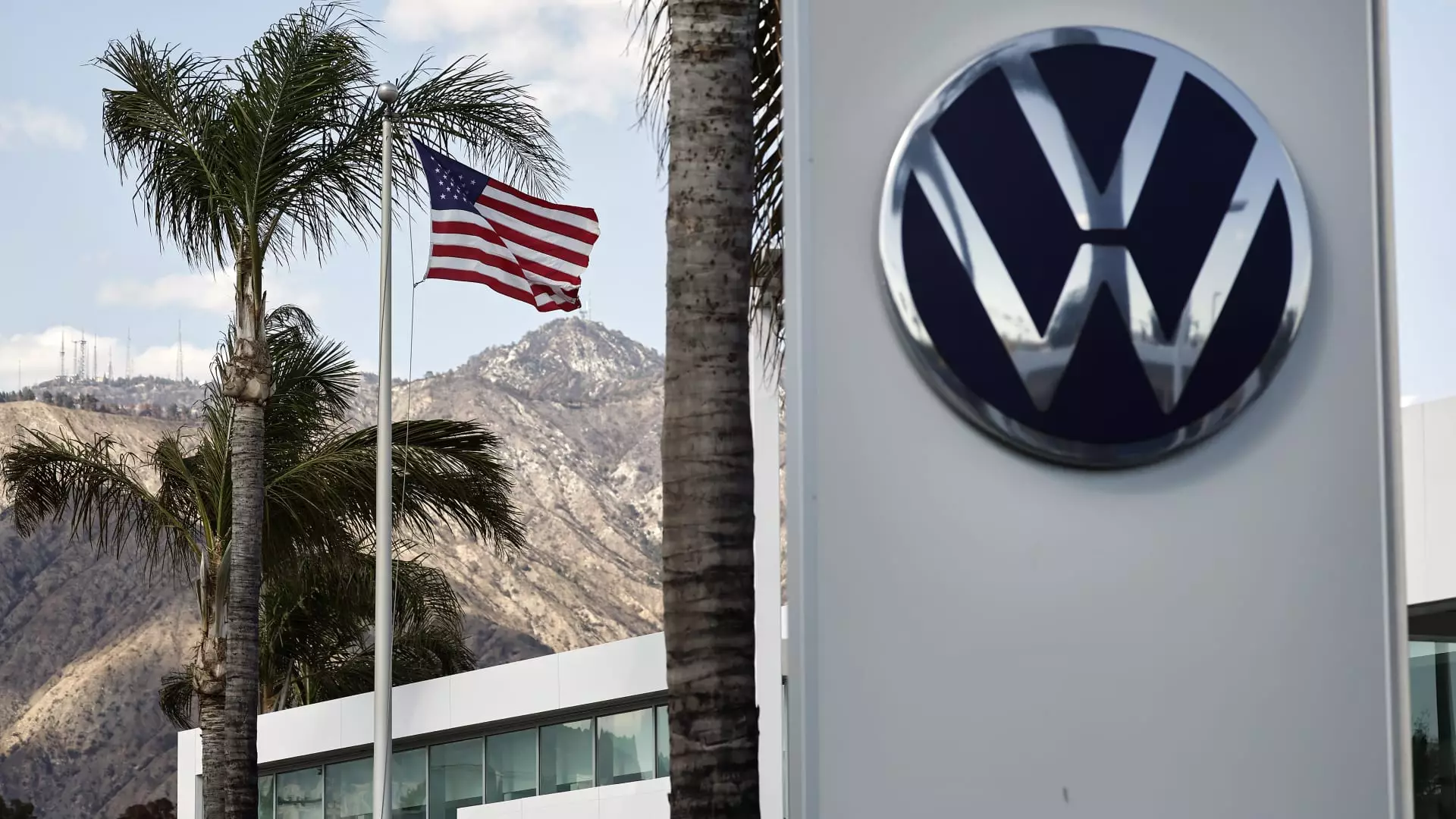Volkswagen, Europe’s automotive behemoth, recently disclosed a staggering 37% decrease in its first-quarter operating profit. The reported figure of 2.9 billion euros ($3.3 billion) starkly contrasts with the healthy growth metrics that investors had come to expect. This downturn highlights not just a failure in market performance but rather an alarming disarray in the business strategies of one of the world’s leading automotive manufacturers. In the shadows of volatility brought about by U.S. tariffs, the ramifications of which are still reverberating throughout the global automotive industry, it appears that Volkswagen is floundering in a sea of uncertainties.
The increase in sales revenue to 77.6 billion euros represents a meager growth of 2.8% in the face of the immense challenges faced in world markets, particularly amidst heightened scrutiny from governmental policies and geopolitical tensions. Volkswagen must grapple with a dual crisis: its operational efficiency suffers as tariffs stifle potential earnings from its major market partner, the United States. How can a company with such a storied history navigate the complexities of a market that seems to be actively working against its interests?
Challenges Beyond Market Performance
Volkswagen’s woeful operating profit is emblematic of broader challenges that echo throughout the automotive sector. Chief Financial Officer Arno Antlitz emphasized the need for “focus on the levers within our control” amidst worries regarding profit outlooks and mounting pressure from tariffs. Credibility is ephemeral, particularly when company profits diverge dramatically from analyst predictions—3.4 billion euros off target in this case. It certainly raises questions about Volkswagen’s transparency, foresight, and risk management capabilities. Are executives truly in touch with the market or have they become ensnared in their own operational frameworks?
The current political climate—characterized by uncertainty and a trade war driven largely by unpredictable tariffs—is forcing global automakers to reconsider their operational underpinnings. Volkswagen, historically a pioneer of manufacturing excellence, now appears vulnerable when weighed against the consequences of policy changes. The 25% tariffs on imported vehicles, combined with additional levies on auto parts, act like an anchor, dragging the company into deeper financial waters. If the industry titans such as Volkswagen can stumble amid political machinations, what hope do smaller manufacturers possess?
Navigating the Digital Age of Auto Manufacturing
In the pursuit of maintaining relevance and competitiveness, Volkswagen must pivot toward embracing technological advancements. With electric vehicles gaining traction and digital ecosystems rapidly evolving, Volkswagen’s commitment to complementing its product range with a “competitive cost base” holds merit, though it feels more reactive than proactive. One can’t help but wonder if the stalwart company is merely playing catch-up in an age defined by innovation and agile responsiveness.
While the reports of a 29% spike in order intakes in Western Europe during the first quarter provide some light at the end of this tumultuous tunnel, they must not obscure the need for a robust strategy. Focus on emerging markets and diversifying product offerings must become paramount if Volkswagen is to weather future storms. Enhancing brand trust and consumer loyalty can only happen through consistent innovations rooted in sustainability and technological integration.
Additionally, as emissions regulations tighten and pressures for greener alternatives mount, Volkswagen’s historical reputation for engineering excellence could be instrumental in charting a sustainable path forward. However, the question remains whether the company’s leaders are ready to distill this historical legacy into a contemporary mission that resonates harmoniously with future demands.
The unfolding saga of Volkswagen represents more than just a drop in profits; it illustrates an urgent call for accountability in navigating complex global relationships and a rapidly evolving market landscape. Those at the helm must grasp not only financial metrics but also the social and political tides that dictate them. The company’s future hinges on a nuanced blend of both strategy and innovation, and whether that blend will rejuvenate the automotive giant or leave it stranded amidst the currents of an uncertain trade environment, only time will tell.

